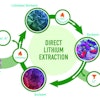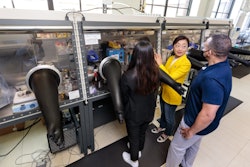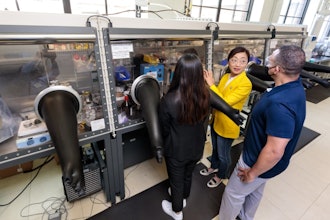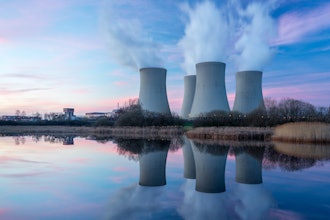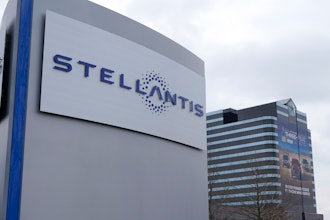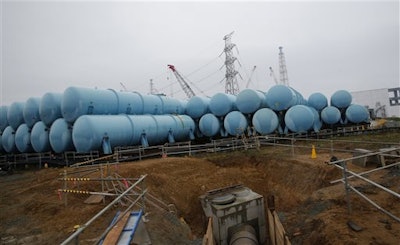
More than three years into the massive cleanup of Japan's tsunami-damaged nuclear power plant, only a tiny fraction of the workers are focused on key tasks such as preparing for the dismantling of the broken reactors and removing radioactive fuel rods.
Instead, nearly all the workers at the Fukushima Dai-ichi plant are devoted to an enormously distracting problem: a still-growing amount of contaminated water used to keep the damaged reactors from overheating. The amount has been swelled further by groundwater entering the reactor buildings.
Hundreds of huge blue and gray tanks to store the radioactive water, and buildings holding water treatment equipment are rapidly taking over the plant, where the cores of three reactors melted following a 2011 earthquake and tsunami. Workers were building more tanks during a visit to the complex Wednesday by foreign media, including The Associated Press.
"The contaminated water is a most pressing issue that we must tackle. There is no doubt about that," said Akira Ono, head of the plant. "Our effort to mitigate the problem is at its peak now. Though I cannot say exactly when, I hope things start getting better when the measures start taking effect."
The numbers tell the story.


